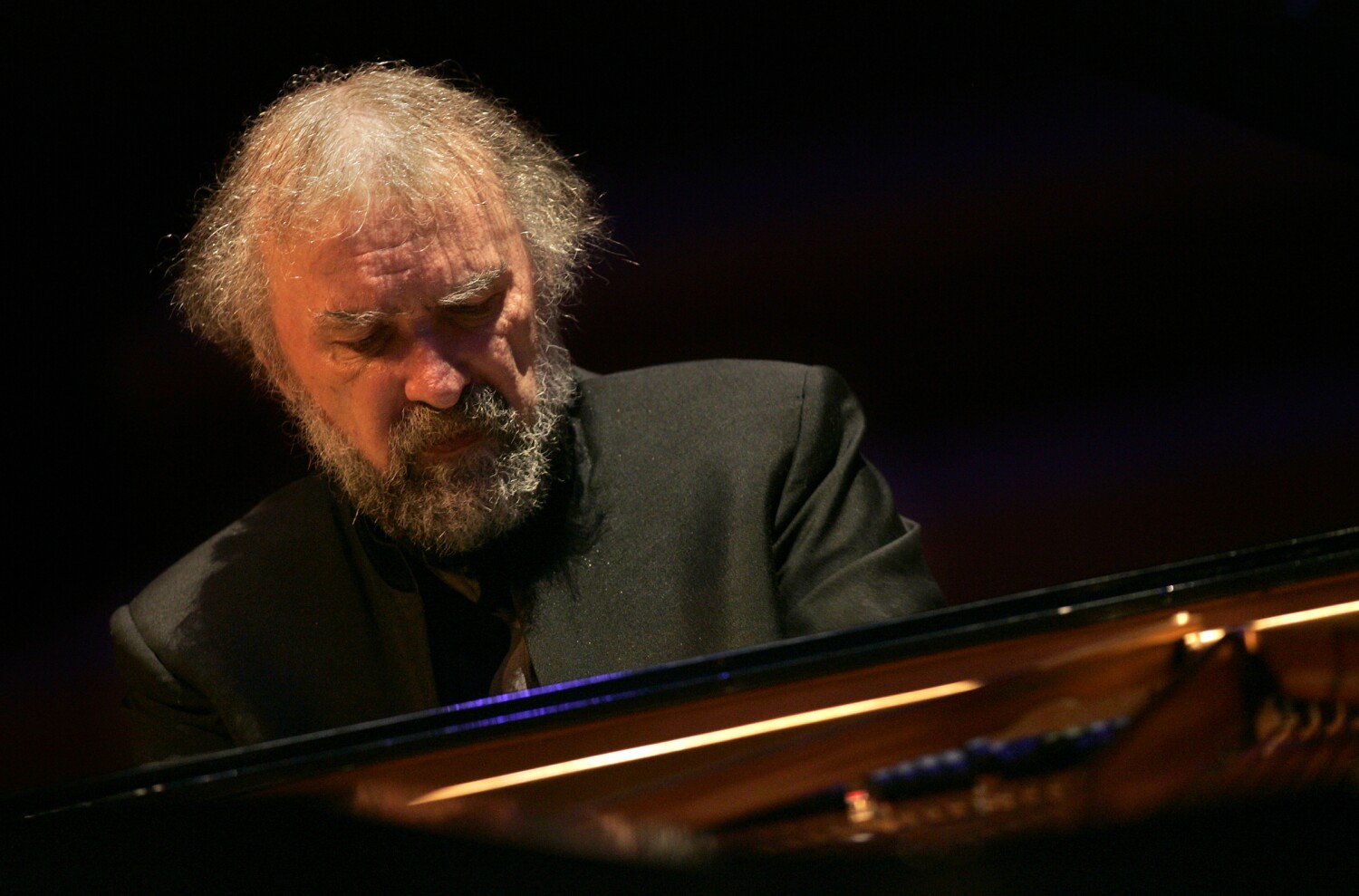Appreciation: Remembering the incomparable pianist Radu Lupu and his legacy of brilliant work

I don’t know how Radu Lupu did it. No one else does either. But I’ve got a couple of theories.
The incomparable Romanian pianist, who died Sunday, was admired not only by a large public he kept enthralled but also by the leading pianists of his day, even legendary ones such as Martha Argerich, Daniel Barenboim and Murray Perahia. On the occasion of Lupu’s 70th birthday in 2015, pianist Kirill Gerstein described Lupu in a New York Review of Books tribute as “far more than a great pianist,” one who took the listener “deep below and far above” the surface of music. André Previn once told me that Lupu was the most magical pianist he had ever worked with.
You will hardly find a review of Lupu, mine included, that doesn’t comment on his gruff, bear-like appearance. Bearded, a little wild-looking, he cheerlessly walked onstage, barely if at all acknowledged the audience, sat down on the ordinary wooden chair he preferred to a posh piano bench. The first notes, be they by Beethoven, Schubert, Schumann or Brahms, were unlike anything you’d ever heard. You were instantly transported.
We don’t know much about Lupu beyond the standard program bios and a Wikipedia entry. He avoided interviews. He did not allow his concerts to be recorded or broadcast. He shooed away photographers and journalists There is very little video (one Mozart concerto is pretty much it). Put Lupu’s name in a books search on Amazon and all that comes up is an issue of the academic Journal of Romanian Studies. He stopped making commercial records in the last two decades of his concertizing, which ended in 2019. As for social media: You’ve got to be kidding.
That’s partly how he did it. Music in the moment, the meaning of lived, not virtualized, was everything to Lupu. His presence was extraordinary.
He walked onstage looking like an early 20th century anarchist. And he played like one, like a musician enraptured with a vision of utopian society. Famous for his lyricism, he spun Schubertian melody into a spellbinding web. He brought fiery passion to a Brahms rhapsody. He made you listen with a zeal you didn’t know you had in you, but it was also a communal zeal, the zeal of the idealistic anarchist who believes in the inherent goodness in people to look out for each other.
Lupu didn’t particularly like the recording studio but he did make records for three decades, nearly all for the British label Decca Classics (originally released as London in the U.S.), and in every single one of them, he succeeds in somehow conveying what shouldn’t be possible to convey. They are beautifully produced, allowing the uniquely Lupu-ian range of colors and textures to magnificently come through even without Decca bothering to remaster any in hi-res.
On hearing of Lupu’s passing, I put on his recordings of Brahms’ late piano pieces, Opp. 117, 118 and 119, which he recorded as a young man. I was instantly, yes, transported. It is absolutely true that his depth, his capacity to impart beauty and a meaning, goes beyond understanding. If truth, in fact, has a sound, this is it.
Fortunately, we got to hear quite a bit of Lupu. He appeared often with the Los Angeles Philharmonic. He was a favorite of Zubin Mehta (who recorded the Beethoven piano concertos with Lupu and the Israel Philharmonic), Carlo Maria Giulini (who was one of the first conductors to champion Lupu in America and whose 1980 performance of Schumann’s Piano Concerto was unusually broadcast) and Previn (of course). Lupu was also the soloist for a memorable performance of Schumann’s concerto in one of Esa-Pekka Salonen’s most personal concerts, one that included the premiere of Franco Donatoni’s “Esa (in Cauda V),” the dying Italian composer’s tribute and farewell to his famous pupil, Salonen. Hearing Lupu’s ethereal yet palpably substantial Schumann afterward captured that place between being and non-being.
Lupu has left us just enough to know what he was. There are around 25 hours of recordings but many of his most remarkable pieces — Beethoven’s last piano sonata, Opus 111, key among them — are gone with him. But his range of music was considerably broader than what we have. He never recorded the Bartók or Janácek works, in which he was amazing at his last L.A. concert in 2006 at Walt Disney Concert Hall. When it comes down to it, we have less documentation of Lupu than of any other contemporary musician of his stature.
But in the age of every living moment captured on someone’s cellphone and posted online somewhere, in an era where life is less lived than postponed, Lupu has left us just enough brilliance to excite our imaginations. We must conjure him as we must great persons whose voices we can no longer hear, and presence we no longer experience. Very often, and for that very reason, they can be the ones who inspire us the most. Not knowing how may actually serve to keep Lupu alive for us.
For all the latest Entertainment News Click Here
For the latest news and updates, follow us on Google News.
